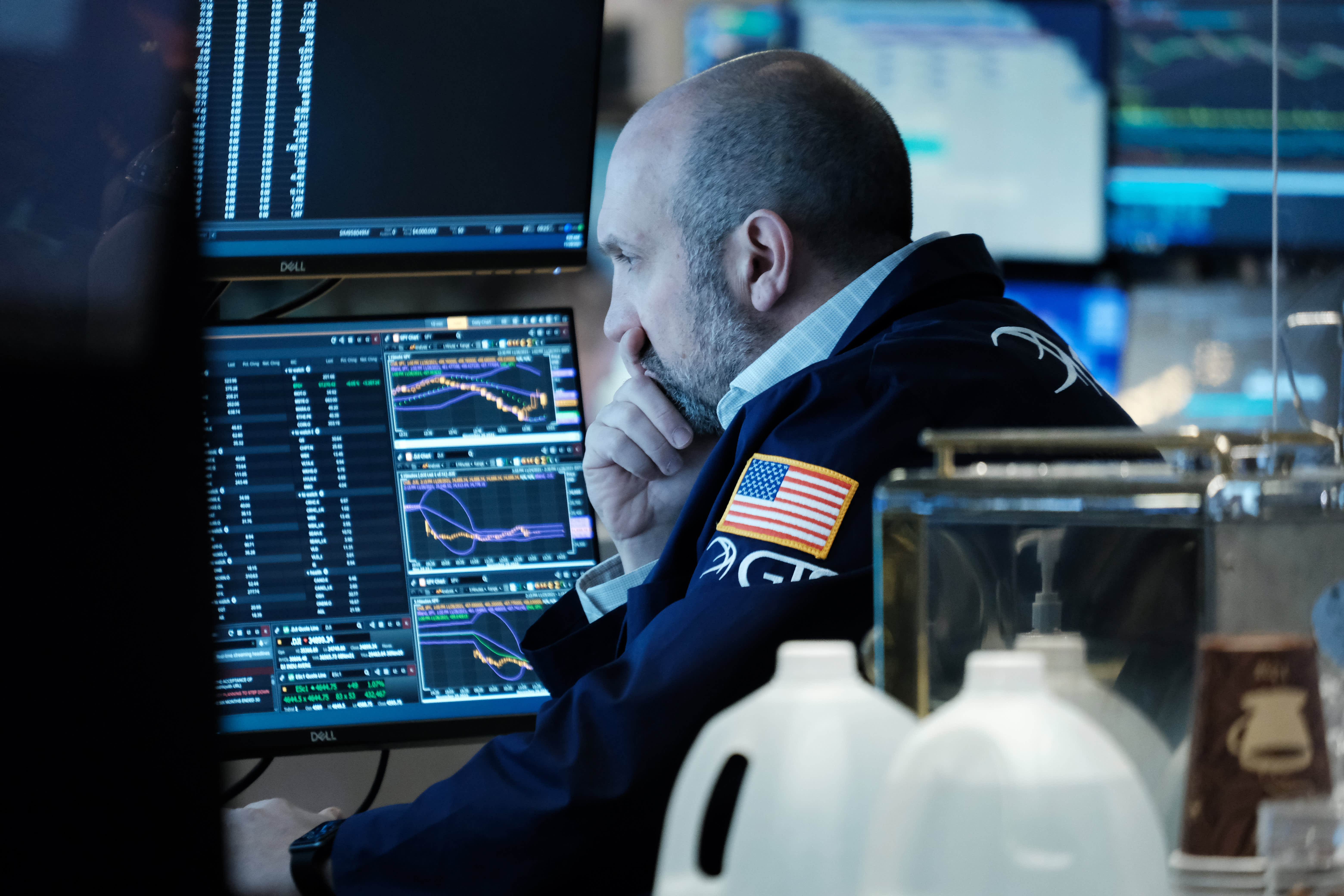Dow drops 600 points after Powell mentions speeding up taper even amid omicron threat

Stocks tumbled on Tuesday, reversing Monday’s rebound on Wall Street, as investors reassessed risks associated with the new omicron Covid variant.
Major averages dropped to their session lows after Federal Reserve Chairman Jerome Powell said the central bank will discuss speeding up bond-buying taper at its December meeting.
The Dow Jones Industrial Average dropped about 630 points, dragged down by losses in American Express and Coca-Cola. The S&P 500 shed 1.8%. The technology-heavy Nasdaq Composite dipped 1.9%. The small-cap benchmark Russell 2000 dropped 2.5%.
In an appearance before a Senate committee, the Fed chief said he thinks reducing the pace of monthly bond buys can move quicker than the $15 billion a month schedule announced earlier this month.
“At this point, the economy is very strong and inflationary pressures are higher, and it is therefore appropriate in my view to consider wrapping up the taper of our asset purchases … perhaps a few months sooner,” Powell said. “I expect that we will discuss that at our upcoming meeting.”
Powell’s comments suggest that the Fed’s focus has now changed to fighting inflation and its negative impacts, rather than any more potential disruptions in economic activity from new variants of Covid.
Tuesday’s reversal also came after Moderna CEO Stephane Bancel told the Financial Times that he expects existing vaccines to be less effective against the new variant. The CEO told the paper there could be a “material drop” in the current vaccines’ effectiveness against this variant. Bancel told CNBC on Monday that it could take months to develop and ship an omicron-specific vaccine. Moderna was down nearly 7%.
Separately, Regeneron said its antibody treatment may have reduced effectiveness against omicron.
“The stock market is laser focused on news flow tied to Omicron,” said Jim Paulsen, chief investment strategist for Leuthold Group. On Monday “the rally was boosted by soothing reports from South Africa that its symptoms seemed to be mild, and this morning, it is being rocked by news from Moderna that Omicron could invalidate our existing vaccines and necessitate a new and improved vaccine which could take months to develop.”
Travel shares, which led Friday’s drop and then gained on Monday, were taking hits once again on Tuesday. Expedia Group fell 3.8%, Norwegian Cruise Line Holdings tumbled 5.4% and American Airlines shares were off by 4%.
“We have to expect…that the scenarios, all scenarios, include discoveries of people in this country with omicron and talk that the vaccines don’t work or if they did those who have had Covid have no immunity,” wrote CNBC’s Jim Cramer on Twitter Tuesday. “These all cause selling.”
The 10-year Treasury yield fell further below 1.45% as investors worried about the economy slowing because of the new variant. The 10-year rate lost 5 basis points to 1.47% (1 basis point equals 0.01%). The benchmark yield was as high as 1.69% last week before Friday’s drop below 1.5%.
Oil prices also declined on Tuesday with U.S. West Texas Intermediate (WTI) crude futures falling 5.4%, to trade at $66.16 per barrel.
Stocks’ move lower follows a volatile last few sessions as investors evaluate the omicron impact. The Dow lost 905 points on Friday, then rebounded by 237 points on Monday. Major averages rose to session highs on Monday after President Joe Biden said economic lockdowns are currently off the table and there will be no new travel restrictions.
Loading chart…
The new Covid variant, first detected in South Africa, has now been found in more than a dozen countries, causing many to restrict travel. The World Health Organization labeled the omicron strain a “variant of concern” on Friday when the Dow slid 900 points to suffer its worst day since October 2020.
Covid symptoms linked to the omicron variant have been described as “extremely mild” by the South African doctor who first raised the alarm over the new strain. Still, the WHO said it will take weeks to understand how the variant may affect diagnostics, therapeutics and vaccines.
The CBOE volatility index, also known as the VIX or Wall Street’s fear gauge, declined during Monday’s rally but still remained above 22. The gauge spiked 10 points to above 28 at one point on Friday. The VIX was higher again on Tuesday.
“With the VIX volatility index surging to its highest level in months, it appears investors may be facing several days of outsized market gyrations,” added Paulsen.
Tuesday marks the final trading day of November, which proved to be a confusing month for investors. The Dow is down about 3.5% in November. The S&P 500 is down 0.5% this month and the Nasdaq is about flat.




